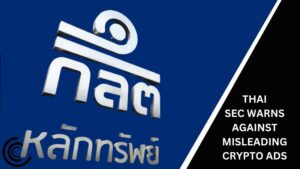Key takeaways:
- A federal judge rejected Terraform Labs’ request to dismiss the SEC’s lawsuit against it.
- The court declined to distinguish between MIR and LUNA coins depending on how they were sold.
On July 31, a federal judge rejected Terraform Labs’ request to have the SEC’s lawsuit against it dismissed because the regulatory body has sufficiently asserted its jurisdiction and “asserted a plausible claim” that TerraUSD (UST), the Anchor Protocol, and LUNA may have broken securities laws.
Perhaps more significantly, Judge Jed Rakoff of the US District Court for the Southern District of New York rejected the application of a recent decision by Judge Analisa Torres, who found that Ripple Labs, a defendant in the SEC case, did not break the law by making XRP accessible through secondary platforms for retail investors to make purchases.
Earlier this year, the SEC filed a lawsuit against Terraform and its founder, Do Kwon, alleging fraud and investment misrepresentation over UST, a stablecoin tethered to the US dollar through the LUNA token.
Terraform asserted in a request to dismiss that consumers purchased UST for practical reasons and did not anticipate it to be an investment.
Attorneys for Terraform also cited the recent Ripple ruling in July, where Judge Torres stated that while Ripple had broken securities laws when selling XRP to institutional investors, retail investors could not have known they were buying XRP from Ripple since they acquired the token on intermediary exchanges through Ripple’s programmatic sales. Judge Rakoff stated in his order on Monday that he disagreed with that strategy. He stated:
“Whatever expectation of profit they had could not, according to that court, be ascribed to defendants’ efforts,”
He pointed out that the SEC said in its filing that Terraform had started a public campaign to persuade retail and institutional investors to buy UST and that the facts in the SEC’s complaint must be valid during the motion to dismiss stage.
The judge similarly denied the “major questions doctrine” defense put forth by Terraform Labs. Several defendants in crypto litigation against the SEC, including cryptocurrency exchange Coinbase, have utilized the theory established by a Supreme Court decision and effectively prevent regulatory organizations from materially exceeding their power. He stated:
“As the doctrine’s name suggests and the Supreme Court has, in case after case, emphasized, the Major Questions Doctrine is intended to apply only in extraordinary circumstances involving industries of ‘vast economic and political significance,'”
Additionally, the court declined to distinguish between MIR and LUNA coins depending on how they were sold. Therefore:
“The Court rejects the approach recently adopted by another judge of this District in a similar case, SEC v. Ripple Labs Inc.”
This strategy, which claimed that XRP was a commodity when traded on the secondary market, gave Ripple some success. If other judges follow Rakoff’s lead, their denial here might be good news for the SEC.











